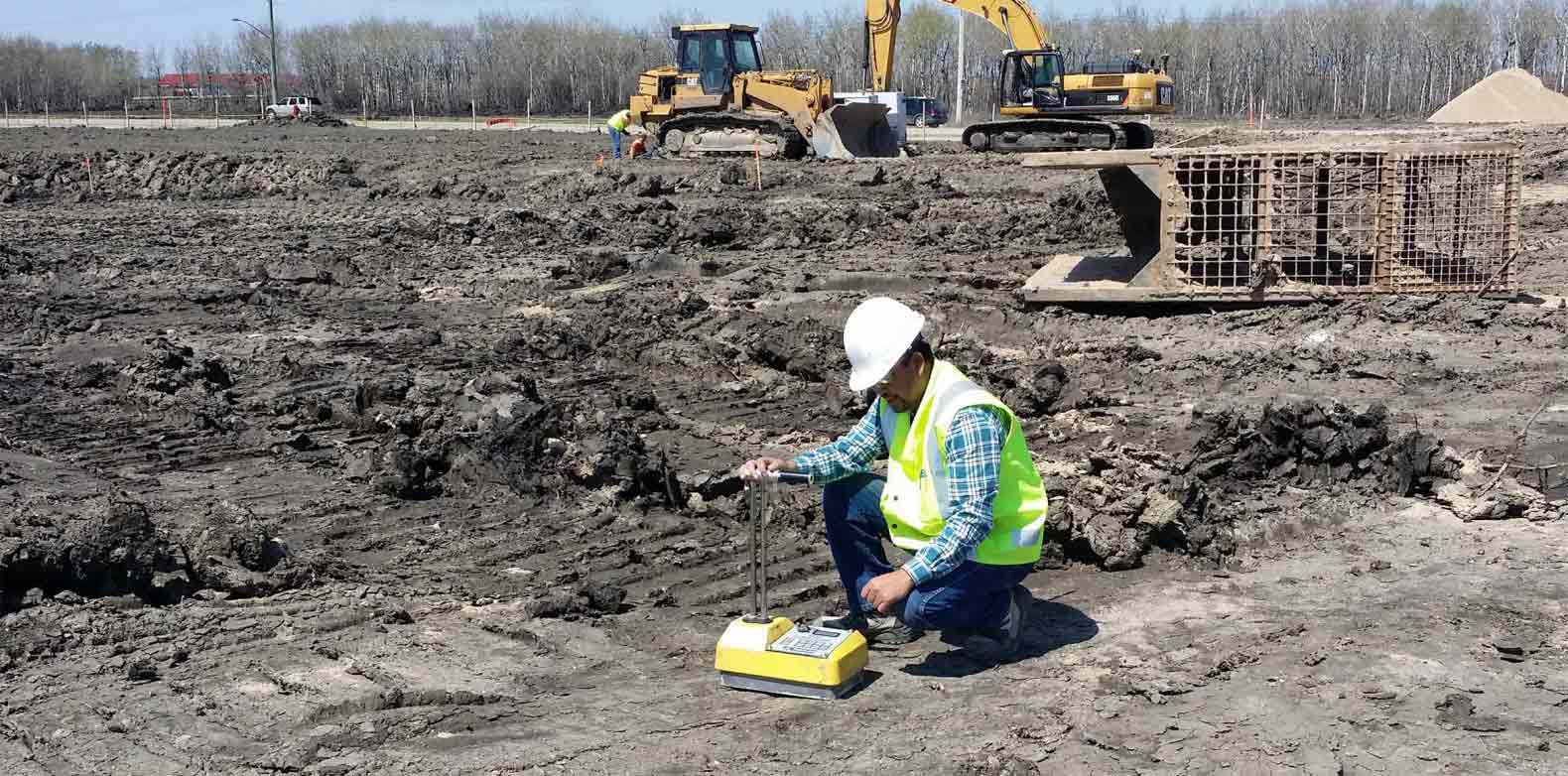Comprehending the Crucial Role of the Geotechnical Market in Modern Building And Construction Projects and Framework Development
The geotechnical market is a foundation of contemporary building and facilities development, giving essential understandings into dirt habits that directly affect job results. Through innovative soil assessments and cutting-edge engineering solutions, geotechnical specialists not only make certain structural honesty yet also address sustainability problems amid evolving environmental criteria.
Importance of Soil Analysis
Soil analysis plays an important role in the geotechnical sector, acting as the structure for informed decision-making in building projects. Precise dirt assessment is crucial for identifying the viability of a site for different kinds of structures, including household homes, industrial buildings, and bridges. By assessing soil structure, thickness, strength, and wetness web content, designers can anticipate potential difficulties and alleviate threats associated with ground instability, erosion, and negotiation.
The analysis procedure generally includes a series of tests and monitorings that supply essential details concerning the subsurface problems. This information educates the layout and construction processes, ensuring that structures are improved strong ground with adequate assistance. Recognizing the dirt profile enables designers to pick proper building methods and products, maximizing resource usage and minimizing prices.
In enhancement to guaranteeing structural honesty, soil assessment adds to environmental sustainability. By identifying possible contamination or negative effects on bordering environments, engineers can apply methods to safeguard these all-natural resources. Overall, comprehensive dirt evaluation is essential in the geotechnical area, underpinning the security, efficiency, and ecological duty of building tasks.
Secret Geotechnical Techniques
A selection of vital geotechnical methods are used to analyze and enhance the security and performance of building websites. One foundational technique is dirt sampling and testing, which permits engineers to figure out the chemical and physical properties of the ground. This info is essential for making informed decisions relating to structure design and building techniques.
An additional important method is website characterization, which entails the detailed assessment of soil and rock conditions with methods such as borehole exploration and in-situ screening. Strategies like Requirement Penetration Examinations (SPT) and Cone Infiltration Examinations (CPT) supply valuable data on soil toughness and stratigraphy.
Ground enhancement techniques, such as dirt stablizing and grouting, are additionally vital in enhancing the load-bearing ability of weak dirts. These methods can reduce negotiation and boost overall site conditions.
In addition, slope stability evaluation is crucial for recognizing potential landslide risks and making sure the safety of excavations. This evaluation often utilizes numerical modeling and limit equilibrium techniques to anticipate soil habits under different conditions.
Incorporating these geotechnical techniques right into building and construction preparation not only optimizes task results however also makes certain the lasting sustainability of facilities development.
Impact on Building And Construction Security

Moreover, efficient geotechnical design involves carrying out reduction techniques for recognized risks. This may consist of dirt stabilization methods, preserving structures, or drainage systems to ease hydrostatic stress. By dealing with these aspects, building and construction teams can decrease the probability of crashes and enhance worker safety.
Additionally, constant tracking of website problems is critical during construction. Geotechnical instruments can offer real-time information relating to ground activity and security, permitting prompt treatments when necessary.
In essence, the geotechnical industry plays a pivotal role in safeguarding construction projects. By prioritizing ground integrity and employing strenuous analysis approaches, the geotechnical field not just secures the labor force however likewise adds to the longevity and reliability of created framework.
Sustainability in Geotechnical Practices

Furthermore, geotechnical designers are now using sophisticated technologies, such as geosynthetics, which boost dirt security while minimizing the volume of product needed. This not just conserves sources but likewise leads to less waste generation (geo tech engineer). The combination of lasting style principles right into geotechnical design encourages making use of renewable resource resources in construction processes, better reducing carbon discharges
By performing these evaluations, geotechnical experts can establish techniques that reduce unfavorable effects, ensuring conformity with ecological guidelines. In general, the emphasis on sustainability within geotechnical techniques not just contributes to the longevity and resilience of framework yet likewise promotes a responsible strategy to land and source administration.
Future Trends in Geotechnical Engineering
Technology is driving the future of geotechnical engineering, as emerging methods and innovations improve the market. The integration of innovative data analytics and expert system is readied to revolutionize website investigation and threat evaluation, making it possible for engineers to make even more educated choices based on real-time information. Moreover, using geosynthetic products is gaining traction, offering sustainable remedies that enhance dirt stability and lower ecological influence.
Another significant fad is the adoption of automated and robotic systems advice for monitoring and construction procedures. These innovations not only boost precision but likewise enhance security by decreasing human involvement in harmful atmospheres. Additionally, the implementation of Structure Info Modeling (BIM) in geotechnical style assists in improved collaboration amongst stakeholders, optimizing task delivery and minimizing prices.
As environment change poses brand-new challenges, the market is progressively concentrating on resilience and additional reading adaptability in layout techniques, making sure infrastructure can withstand severe weather occasions. The ongoing pattern towards sustainability will certainly drive advancement in environmentally friendly products and approaches, aligning geotechnical design with broader ecological objectives. Jointly, these trends will form an extra efficient, lasting, and durable geotechnical landscape for future jobs.
Conclusion

The geotechnical sector is a keystone of contemporary building and construction and framework advancement, giving vital insights into dirt behavior that directly affect job results. geo tech engineer.Dirt evaluation plays a critical duty in the geotechnical market, offering as the foundation for notified decision-making in construction tasks. On the whole, thorough dirt analysis is crucial in the geotechnical field, underpinning the safety and security, performance, and ecological duty of construction jobs
Building and construction security is considerably influenced by geotechnical practices, as the security and honesty of the ground straight affect the total safety of a building site.In verdict, the geotechnical sector is important in contemporary building and construction and facilities advancement, providing important analyses that make certain structural stability and safety.